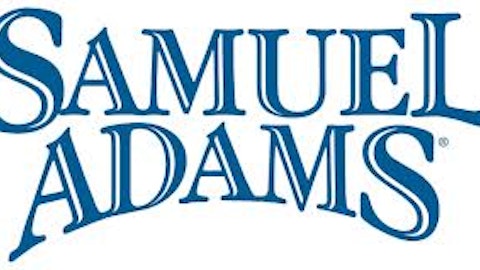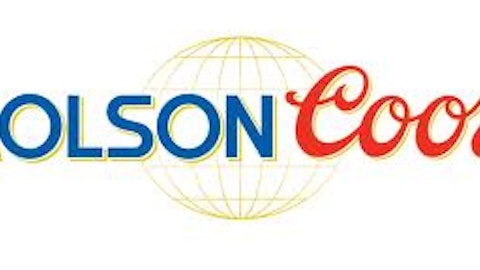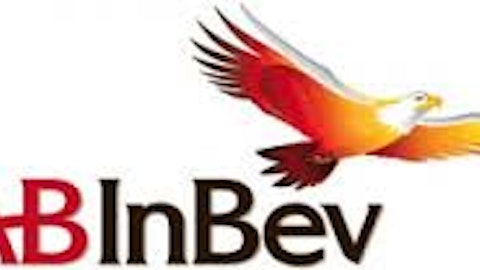Molson Coors Brewing Company (NYSE:TAP) is suffering from weak consumer demand in all its markets and it expects this trend to continue. However, Molson Coors Brewing Company (NYSE:TAP) still plans to increase its marketing and innovation in order to drive growth and reward shareholders. Only time will tell if Molson Coors will be successful in reigniting its growth, but for Foolish investors looking for an intelligent way to invest in the beer industry, it might be just the ticket.
Mixed results
In the second quarter, Molson Coors Brewing Company (NYSE:TAP) saw worldwide beer volume skyrocket 20.2% year over year. However, its acquisition of StarBev, which is now called Molson Coors Central Europe, supported this growth in a big way. For instance, Molson Coors International volume jumped 51%, but if you take away Molson Coors Central Europe, the company’s sales volume declined 13.6%.

You can also feel somewhat at ease knowing that Molson Coors owns several household brand names and the company is good at generating cash flow. For instance, for the first half of the year, Molson Coors Brewing Company (NYSE:TAP) increased its cash flow 8.8% to $365.8 million year-over-year. Also, in the second quarter Molson Coors reduced its net debt by $373 million.
Molson Coors is good at finding ways to boost the top line, improve cash flow, and reward its shareholders — it offers a 2.60% yield. However, considering the economic landscape, you’re going to want to make sure you invest in the top company in the space.
Molson Coors vs. peers
Molson Coors Brewing Company (NYSE:TAP) sports a market cap of $9.06 billion, making it a much smaller company than Anheuser-Busch InBev NV (ADR) (NYSE:BUD), which sports a market cap of $157.57 billion and has an impressive brand portfolio, including Budweiser, Bud Light, Michelob, and Becks. On the other end of the spectrum is Boston Beer Co Inc (NYSE:SAM), with a market cap of $2.91 billion and brands Samuel Adams, Twisted Tea, and Angry Orchard.
Let’s take a look at how these companies look on a fundamental basis:
| Forward P/E | Net Margin | ROE | Dividend Yield | Debt-to-Equity Ratio | |
|---|---|---|---|---|---|
| Molson Coors | 12 | 13.53% | 7.26% | 2.60% | 0.57 |
| Anheuser-Busch | 18 | 32.61% | 32.58% | 2.00% | 0.97 |
| Boston Beer | 38 | 10.09% | 27.69% | None | 0.00 |
Despite Boston Beer Co Inc (NYSE:SAM)’s stellar debt management and solid return-on-equity, it doesn’t pay a dividend. Boston Beer Co Inc (NYSE:SAM)’s trading at 38 times forward earnings makes it higher risk because there are no dividend payments to fall back on if the stock heads south.
When you invest in Molson Coors or Anheuser-Busch InBev NV (ADR) (NYSE:BUD), you’re getting dividend payments as well as growth potential. Molson Coors is a little more impressive in this area at 2.60% yield versus Anheuser-Busch InBev NV (ADR) (NYSE:BUD)’s 2.00% yield, and Molson Coors is trading at just 12 times forward earnings versus 18 times forward earnings for Anheuser-Busch InBev NV (ADR) (NYSE:BUD). On the other hand, Anheuser-Busch InBev NV (ADR) (NYSE:BUD) converts more revenue and investor dollars into profit. Thanks to its sheer size, the stock should also be more resilient to market corrections.


